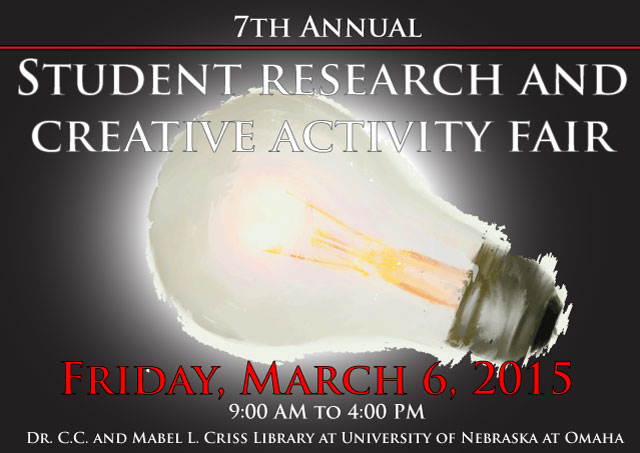
Solving Puzzles and Problems
Advisor Information
Roni Reiter-Palmon
Location
Dr. C.C. and Mabel L. Criss Library
Presentation Type
Poster
Start Date
6-3-2015 11:00 AM
End Date
6-3-2015 12:30 PM
Abstract
The primary research question for this study was whether malevolent creativity (MC), which is a harmful form of creativity, would be influenced by different kinds of words that individuals are exposed to. These words were presented in the form of jumbled word puzzles, with the words being aggressive in nature, pro-social in nature, or neutral. After completing word puzzles, participants then responded to one of three creativity tasks (i.e., an aggressive problem, a pro-social problem, or generating uses for a brick). Although the type of word puzzle that participants were exposed to did not influence their MC, the creativity task type did influence MC, as well as benevolent creativity, unoriginal malevolence, and unoriginal benevolence. These results suggest that MC (and related forms of problem solving) may not be easily primed within individuals using word puzzles, and that such priming may require stronger stimuli such as stories, pictures, and videos. The effect of task type adds evidence to the notion that the harmfulness and benevolence of creative ideas can be influenced by the kinds of tasks people respond to.
Solving Puzzles and Problems
Dr. C.C. and Mabel L. Criss Library
The primary research question for this study was whether malevolent creativity (MC), which is a harmful form of creativity, would be influenced by different kinds of words that individuals are exposed to. These words were presented in the form of jumbled word puzzles, with the words being aggressive in nature, pro-social in nature, or neutral. After completing word puzzles, participants then responded to one of three creativity tasks (i.e., an aggressive problem, a pro-social problem, or generating uses for a brick). Although the type of word puzzle that participants were exposed to did not influence their MC, the creativity task type did influence MC, as well as benevolent creativity, unoriginal malevolence, and unoriginal benevolence. These results suggest that MC (and related forms of problem solving) may not be easily primed within individuals using word puzzles, and that such priming may require stronger stimuli such as stories, pictures, and videos. The effect of task type adds evidence to the notion that the harmfulness and benevolence of creative ideas can be influenced by the kinds of tasks people respond to.
